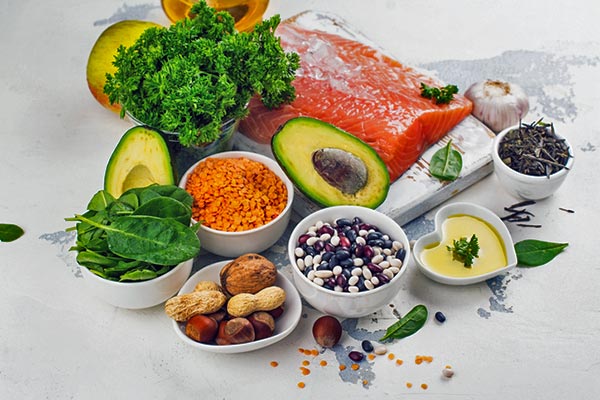Athletes require a balanced and nutritious diet to perform at their best. Proper nutrition is essential for fueling their bodies and providing the energy needed for training and competition. In this article, we will explore the key components of a healthy diet for athletes and how they can optimize their nutrition for maximum performance.
Macronutrients

Macronutrients are the three main types of nutrients that provide energy to the body: carbohydrates, proteins, and fats. Athletes need a balanced intake of all three to fuel their bodies and support muscle growth and repair.
- Carbohydrates: Carbohydrates are the primary source of energy for athletes. They provide the body with glucose, which is used for fuel during exercise. Complex carbohydrates, such as whole grains, vegetables, and fruits, are the best sources of carbohydrates for athletes. These foods provide sustained energy and are also rich in fiber, vitamins, and minerals.
- Proteins: Protein is essential for building and repairing muscle tissue. Athletes need more protein than sedentary individuals, but the exact amount varies depending on the type and intensity of their sport. Good sources of protein include lean meats, fish, poultry, beans, and tofu.
- Fats: Fats provide the body with energy and support cell growth and function. Healthy fats, such as those found in nuts, seeds, avocados, and fatty fish, should be a part of an athlete’s diet. It is important to limit intake of saturated and trans fats, which can increase the risk of heart disease.
Micronutrients
In addition to macronutrients, athletes also need adequate amounts of micronutrients, such as vitamins and minerals. These nutrients are essential for maintaining overall health and optimizing athletic performance.
- Vitamins: Vitamins are essential for maintaining a healthy immune system, promoting recovery, and reducing inflammation. Athletes should aim to consume a variety of fruits and vegetables to ensure they are getting sufficient vitamins.
- Minerals: Minerals such as calcium, iron, and zinc are important for bone health, oxygen transport, and immune function. Good sources of minerals include dairy products, leafy greens, and lean meats.
Hydration
Proper hydration is critical for athletes to perform at their best. Dehydration can lead to fatigue, decreased endurance, and impaired cognitive function. Athletes should aim to drink water throughout the day and consume fluids before, during, and after exercise. Sports drinks can also be useful for replacing electrolytes lost during intense exercise.
Timing and Quantity
When it comes to nutrition for athletes, timing and quantity are important considerations. Athletes should eat a balanced meal containing all three macronutrients 2-3 hours before exercise. They should also consume a snack or small meal containing carbohydrates and protein 30 minutes to an hour before exercise. During exercise, athletes should aim to consume 30-60 grams of carbohydrates per hour to maintain energy levels. After exercise, athletes should consume a meal or snack containing carbohydrates and protein to aid in muscle recovery.
Proper nutrition is essential for athletes to perform at their best. A balanced diet containing adequate amounts of macronutrients and micronutrients, coupled with proper hydration and timing, can help athletes optimize their performance and achieve their goals.

